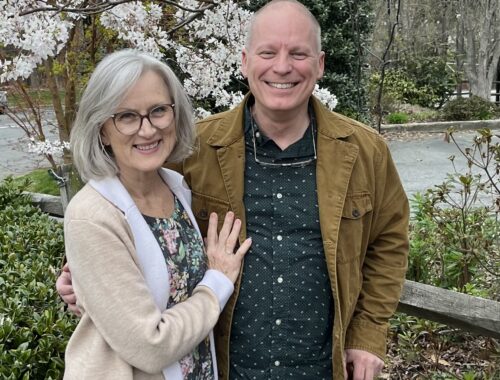Two weeks ago I attended a “Celebrating Creation” conference hosted by the BioLogos Foundation. As many readers know, BioLogos is an organization of evangelicals who accept theistic evolution (or evolutionary creationism, EC, as many prefer to call it). Evangelicals hold to a wide range of views concerning creation and evolution, and I’ve had the privilege of engaging with a number of groups representing positions across the spectrum, including intelligent design proponents (ID) and old-earth creationists (OEC). Similarly, I’ll always be grateful to Answers in Genesis (a young-earth creationists organization, YEC) for the opportunity a few years back to float down the Grand Canyon on an eight-day rafting tour and hear them present the case for the young-earth view.
Personally, I hold to old-earth creationism. I affirm the historicity of Adam and Eve and believe the original couple were the special creation of God. When the invitation came from BioLogos to attend this event, I was glad to take part. I’m thankful to Debra Haarsma, Jeff Schloss, and Jim Stump of Biologos for the opportunity. Here are a few of my takeaway thoughts:
1. BioLogos deserves a place at the table, taking part in the conversation. Evangelicals need to hear what they have to say. They represent a minority view among evangelicals, and they realize it. However, significant evangelicals of the past–such as B. B. Warfield and John Stott–held to versions of evolution. And today evangelical thinkers such as Alister McGrath embrace some aspects of evolutionary theory. I still believe that the issue of a historical Adam and Eve present EC proponents with a herculean (and perhaps impossible) theological task. But they are saying some things we evangelicals need to hear. The claims made by EC advocates can be discussed, challenged, and (when appropriate) opposed, but the adherents themselves should not be vilified.
2. EC advocates recognize that they have theological work to do, particularly on the issue of a historical Fall. As the various speakers made their presentations, their candor and transparency was refreshing. We heard from a number of speakers (Denis Alexander and Jeff Schloss) who wished, one way or another, to affirm a historical Adam and Eve within an evolutionary context. In this area, evolutionary creationists face challenges. The latest findings in genetics place human origins in Africa rather than the Middle East, and the evidence indicates that humans descended from a community (of perhaps several thousand individuals) rather than just a solitary couple. Invited guest Jack Collins demonstrated the important role that the original couple play in the biblical narrative. I was glad to hear the BioLogos representatives acknowledge the significance of this matter.
3. EC advocates utilized ID and OEC arguments on several important points. All too often advocates of the respective views have been unwilling to acknowledge points of agreement, instead choosing to stress the areas of disagreement. This conference was different. Several speakers made arguments that parallel those made by ID and OEC advocates. They observed that the Big Bang theory lends itself readily to a theistic interpretation. Time and again presenters noted the fine-tuning of the universe. They acknowledged that, at present, all attempts to account for the origin of life have failed. These are talking points generally made by ID advocates. Some took care to distinguish evolutionary creationism from naturalistic Darwinism and from the atheistic nihilism that Darwinism so often produces. Old-earth creationists such as Hugh Ross and Fuz Rana were referenced in positive ways.
4. We need a Christian understanding of evolution, not an evolutionary interpretation of Christianity. There are plenty of examples of those who have attempted to interpret Christianity through the lens of evolution. (I’m thinking now of modernists such as Harry Emerson Fosdick or Teilhard de Chardin.) The results have not been pretty. Modernists during the late 19th and early 20th centuries attempted to accommodate Darwinism by shoehorning Christianity into a naturalistic framework. The outcome was a complete capitulation to the spirit of the age and the Gospel was lost. The members of BioLogos seem to be keenly aware of these past disasters. But they note that evangelicals cannot pretend that the scientific evidence is going to disappear. Jeff Schloss rightly pointed out that even YEC proponents accept that some type of mutability of species occurred after Noah’s flood. As recent articles in the New York Times and the journal Nature illustrate, Darwinism–as a paradigm–is in serious trouble. But evolutionary theory is not going away. So without agreeing with the EC position, I am thankful for the BioLogos Foundation. They are prodding evangelicals to examine the findings of genetics and geology in ways that do not appear to be glib and dismissive. Let the conversation continue.
[This blog is cross-posted at www.betweenthetimes.com]
